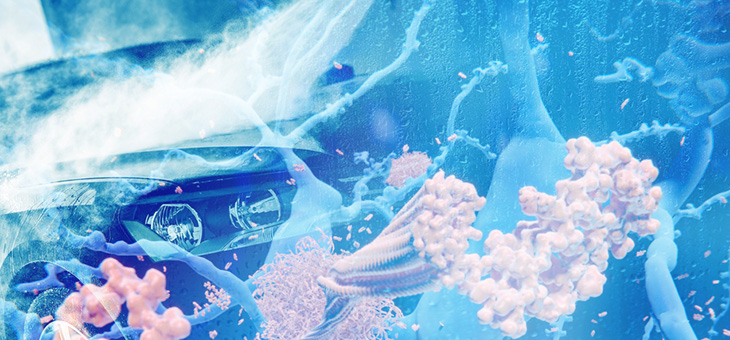Scientists have discovered a pathway that functions like a car wash to prevent the build-up of a toxic protein associated with Alzheimer’s disease.
The report, published in the journal Cell, revealed a mouse model of a promising new approach to treatment of the chronic neurodegenerative disorder and, as this pathway also regulates inflammation, the discovery could also be used in the fight against malignant brain tumours.
The pathway, known to researchers as ‘LC3-associated endocytosis’ or ‘LANDO’, was discovered in microglial cells, the primary immune cells of the brain and central nervous system. Preliminary evidence suggests LANDO is a fundamental process that functions throughout the whole body.
Mouse studies show that LANDO protects against deposits of neurotoxic beta-amyloid protein and neurodegenerative disease. Activation of the pathway also guards against toxic neuroinflammation, neurodegeneration and memory problems.
“In the context of neurodegenerative diseases such as Alzheimer’s, activating LANDO in microglial cells could prove to be therapeutically beneficial through increased clearance of beta-amyloid and mitigation of neuroinflammation,” said corresponding author Douglas Green PhD, chair of the St Jude Department of Immunology.
The pathway may also boost the effectiveness of cancer immunotherapy.
“Although in its infancy, preliminary data using a primary brain tumour model, suggests that inhibition of LANDO might provide a mechanism to activate inflammation within the tumour microenvironment to generate an anti-tumour response,” said first author Bradlee Heckmann PhD.
According to Science Daily, how LANDO works can be compared to an automatic carwash. Cars act as receptors on microglial cells that bind to neurotoxic beta-amyloid proteins and bring the protein into the car wash. Once the ‘dirt’ is washed off the car, the receptor returns to the microglial surface and starts the process over again.
The discovery is somewhat of a happy accident as, initially, the research was aimed at studying immune responses to cancer. However, Dr Heckmann recognised the findings had relevance to older people.
“You never know where science will lead,” said Dr Green. “That’s how science works. When you follow the data, you never know where it will lead.”
If you enjoy our content, don’t keep it to yourself. Share our free eNews with your friends and encourage them to sign up.
Related articles:
Science cracks Alzheimer’s mystery
Gut infection linked to Alzheimer’s
Drinkable cure for Alzheimer’s

